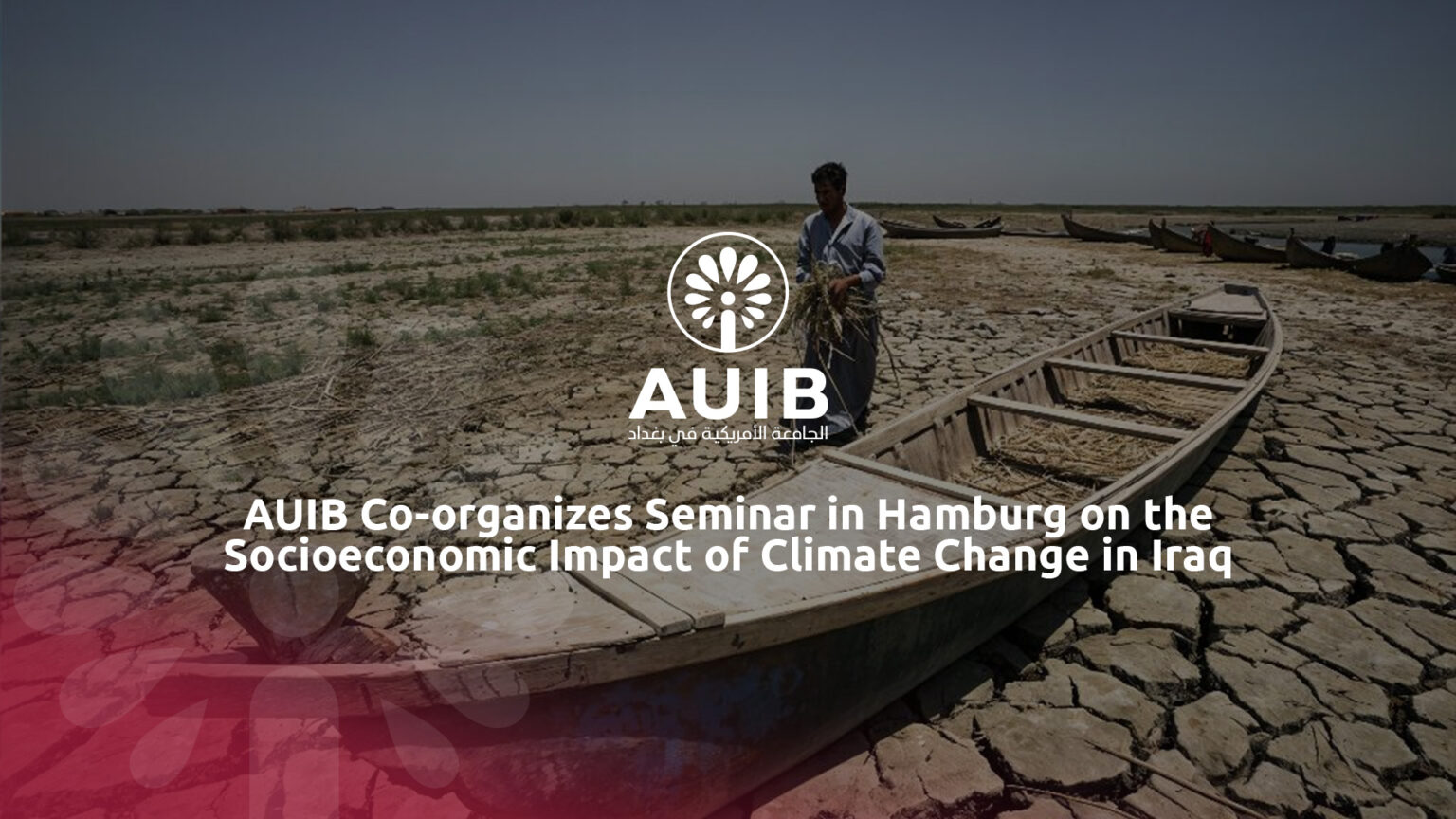“While violence, political instability, and economic hardship dominate refugee testimonies, references to climate change or environmental degradation are conspicuously absent,” noted Dr. Nils Lukacs of the GIGA Institute for Middle East Studies at a seminar on the “Socioeconomic Impact of Climate Change on Southern Marshes of Iraq: Building Resilience through Academic Exchange and Advocacy.” The notion of this “conspicuous absence” of references to environmental degradation, or at least the lack thereof, was echoed at the seminar by Prof. Dr. Eckart Woertz, who discussed the impact of climate change on food security in Iraq, citing a survey conducted among 152 Iraqi experts from various sectors, which revealed “a consensus that political instability and bad governance are the most critical challenges facing food security,” even more than water scarcity and climate change.
Such discussions highlight the importance of the initiative taken by the American University of Iraq-Baghdad (AUIB) in establishing its Center for Climate Change, Water Security, and Environmental Sustainability (CWE) to contribute to efforts at tackling the very roots of vital issues arising from environmental degradation, such as threats to food security and public health, as well as internal displacement and migration. It is in this context that AUIB’s Global Engagement Office co-organized the aforementioned seminar on the socioeconomic impact of climate change, in Hamburg last October, in cooperation with the GIGA Institute for Middle East Studies and the Berlin Institute for Empirical Research on Integration and Migration (BIM), and by funding from the German Academic Exchange Service (DAAD).
The seminar emphasized the importance of a multidisciplinary approach and transnational collaboration among universities, scientists, civil society organizations, and decision makers. In her opening remarks, Regional Director for Europe at AUIB’s Global Engagement Office, Ms. Dalia Abid, spoke of the need for sustainable strategies to address the challenges of climate change in Iraq, highlighting in this regard AUIB’s mission to serve as a platform for international exchange and collaboration. Professor of Biology at AUIB, Dr. Myrna Semaan, presented the university’s Center for Climate Change, elaborating on its role in incorporating environmental studies into a wide array of AUIB’s degree programs and supporting relevant research with small grants. Also at the seminar was a presentation by Assistant Professor of Computer Science at AUIB, Dr. Adil Ghidan, on an AI-based video monitoring system designed to function in extreme weather conditions in Iraq and support climate adaptation efforts.
